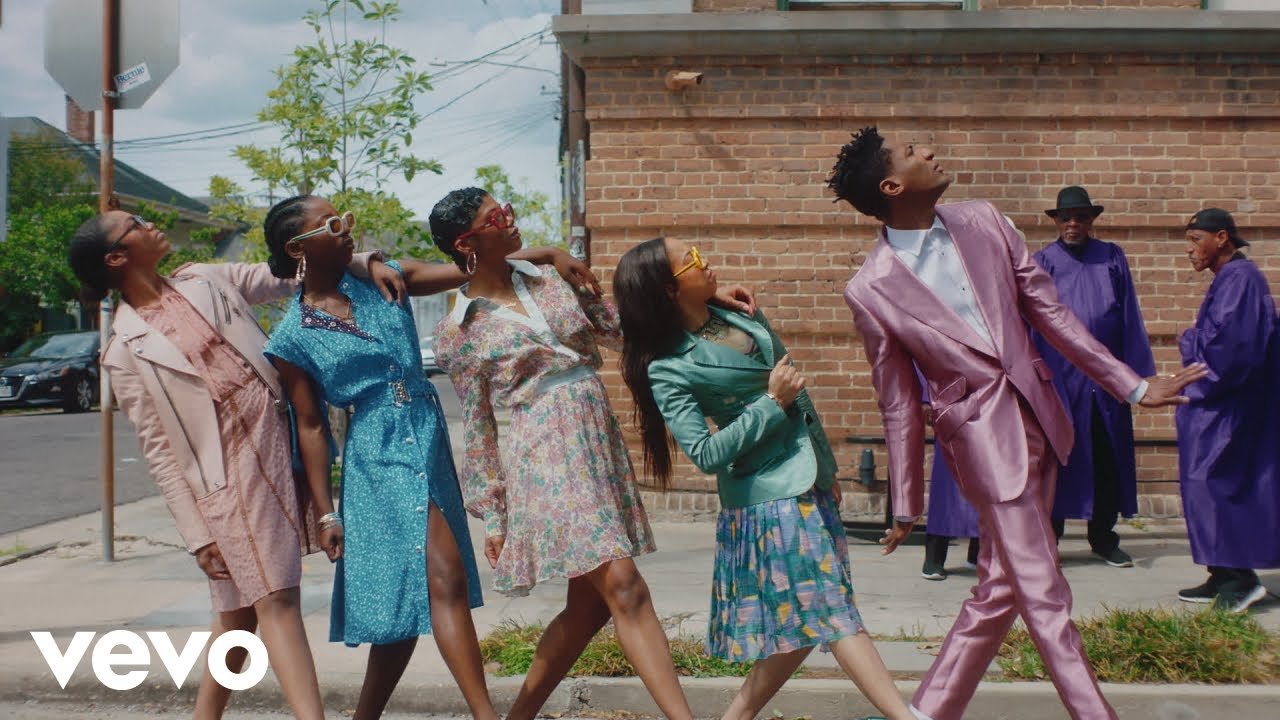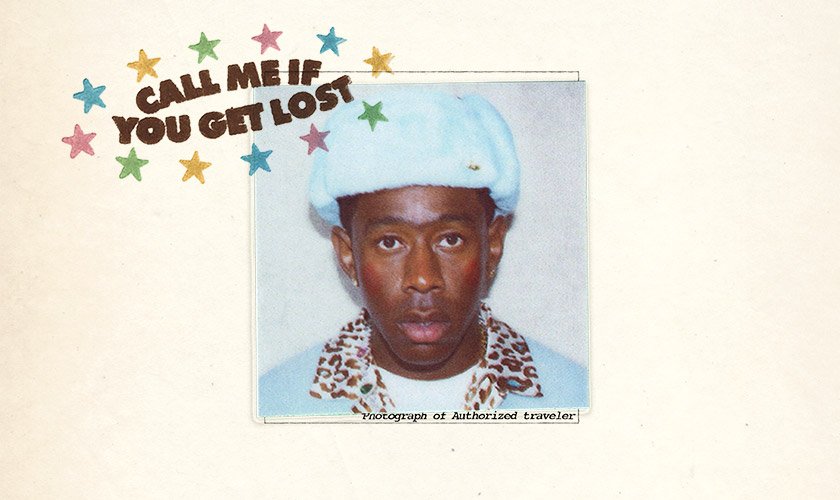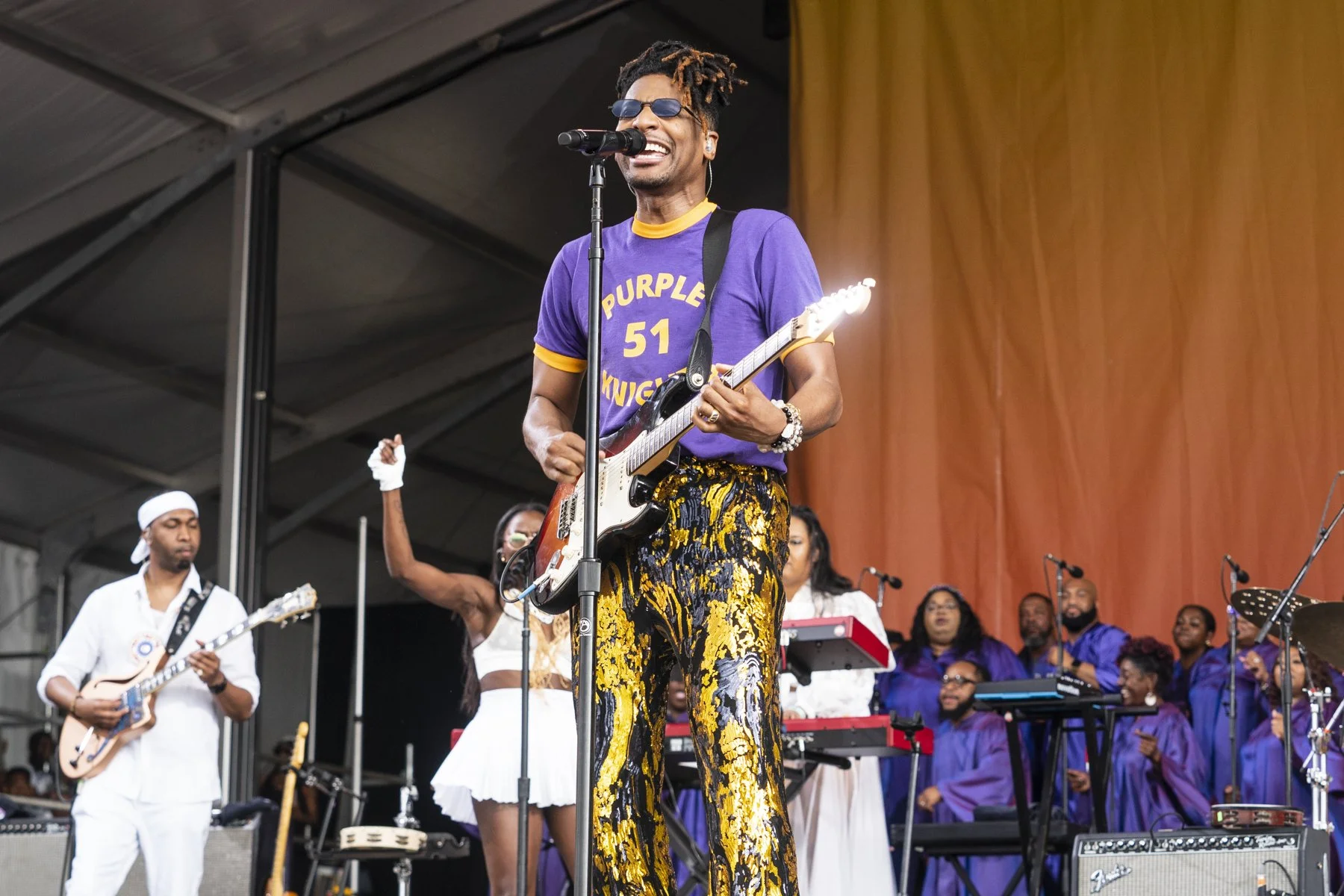Jon Batiste's Grammy Wins Were a Safe Bet

From Jon Batiste’s “Freedom” video
For some, the New Orleanian’s Album of the Year Grammy was a sign of Grammys Being Grammys; really, it was the logical winner.
When Jon Batiste’s We Are won the Grammy on Sunday night for Album of the Year, Jon Caramanica of The New York Times observed that an album that peaked at 86 on Billboard’s album chart was voted the best of the year. The shade was for Grammy voters, not Batiste. After his exuberant performance of “Freedom” during the telecast, Caramanica wrote, “His performances activate the whole body, his message is hard to quibble with and his sense of music is communal. He ended his performance out in the audience, jumping on the table in front of Billie Eilish and Finneas and getting them to sing along with him: “Freeeeeeeedom!”
Batiste also won Best Video, Best American Roots Performance and Best American Roots for “Freedom,” and for me, its success seemed inevitable. First, “Freedom” is a really good, resonant song with a video that blew me away on the first four or five viewings as well. And everything Caramanica said about it is true. Batiste’s ability in performance to turn his body into the physical expression of the song and its central thought helps it transcend the boundaries of the song.
But thinking about Grammy voters and who makes up the Recording Academy helps explain Grammy results in general and why I considered him an odds-on favorite from the start.
Pop music has the highest profile in Grammy World, but all the blues and jazz and folk and classical and world music artists, and all the engineers and producers and liner note writers, and a whole lot of other people indirectly involved in music creation vote too. Many of those fields value clear demonstrations of musicianship more than pop does, and if there is one thing Batiste exudes, it’s musicianship. In many of those fields, fealty to roots is valued, and Batiste makes his abundantly clear.
Older parts of the voting community remember when pop was more popular, and voting for Batiste was a way to cast a vote that’s partly an embrace of classic, populist pop and partly a slap on the wrists to kids these days and their newfangled ways. But despite the soul, gospel, and R&B roots of We Are, its sonics are contemporary, and it sounds current enough that other older voters could vote for it and feel like they were cosigning modern pop and staying current.
It helps that Batiste has a regular TV gig that allows him to show that he’s a professional musician who has the chops and temperament to be the bandleader on The Late Show with Stephen Colbert. Voters could feel comfortable that they were endorsing a real musician and not simply a studio product who’ll never be that good again, but Batiste also has an anarchic streak that gives him some disruptor credibility. He earned his gig on The Late Show when he led Colbert and his Colbert Report audience out of the studio to dance in the Manhattan streets, and that sensibility still manifests itself occasionally on the show.
It’s easy to dump on the Grammys, which always seems a little behind the times. It can’t help it when part of the voting body is laser-focused on the charts while a bigger voting bloc sees the music they’re connected to marginalized by the same charts. The show and the results are always going to be a little schizophrenic, but as Billie Eilish and Finneas shouting along to “Freedom” demonstrated, Batiste might be the lone figure at the intersection point when the Venn diagram of Grammy voters is drawn.
Creator of My Spilt Milk and its spin-off Christmas music website and podcast, TwelveSongsOfChristmas.com.






